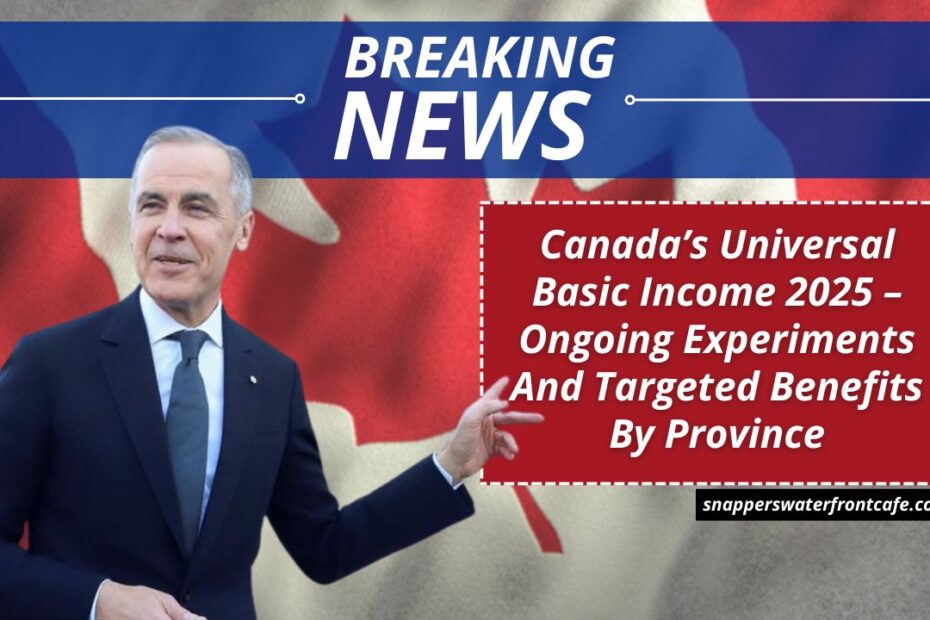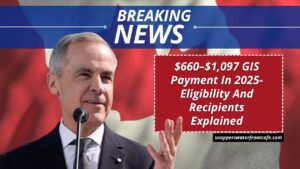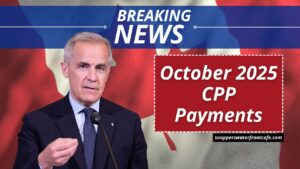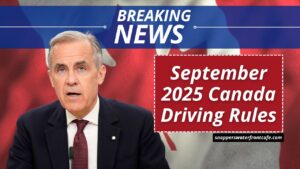As discussions around financial stability and poverty reduction evolve, Canada’s Universal Basic Income (UBI) 2025 agenda remains a prominent topic.
While Canada hasn’t implemented a national UBI, it has rolled out several targeted basic income pilot programs and legislative initiatives across provinces to test its economic and social impacts.
What Is Universal Basic Income (UBI)?
Universal Basic Income (UBI) refers to unconditional payments made to all citizens, regardless of their income or employment status. Unlike other benefits, UBI does not require recipients to prove need, making it universal and automatic.
In contrast, Guaranteed Basic Income (GBI) or targeted income programs offer similar cash benefits but are conditional, based on eligibility criteria such as income, age, or disability status.
Key Active and Past UBI Programs in Canada
While there is no full national UBI program, Canada has tested or is running several basic income pilot projects across provinces. Below is a list of major initiatives:
| Province/Territory | Program Name | Benefit Amount | Target Group |
|---|---|---|---|
| Ontario | Basic Income Pilot (2017–2018) | $16,989/year (single); $24,027/year (couples) | Low-to-middle income earners |
| British Columbia | New Leaf Project | $7,500 (lump-sum) | Homeless individuals |
| Quebec | Basic Income Program | ~$1,309/month | People with long-term work limitations |
| PEI | T-BIG Pilot | Top-ups to 85% of poverty line | 600+ low-income individuals |
| Newfoundland & Labrador | Income Support (60–64 age group) | Monthly cash support | Seniors near retirement without OAS |
Legislative Moves Toward UBI
Two federal bills are actively advocating for a national UBI framework:
- Bill S-233 (Senator Kim Pate): Proposes a guaranteed livable income for individuals 17+.
- Bill C-233 (MP Leah Gazan): Mirrors S-233 and promotes income security at a national level.
As of mid-2025, both bills are still under consideration in the Senate and House of Commons, with growing political interest.
UBI for Seniors in Canada
Canada already provides a quasi-basic income to low-income seniors through OAS and the Guaranteed Income Supplement (GIS):
| Recipient Type | Monthly GIS (2025) | Eligibility |
|---|---|---|
| Single seniors | Up to $1,087 | Age 65+, low income, OAS recipient |
| Couples | Varies with income | Combined income-based qualification |
Public Opinion and Cost Analysis
- 60% of Canadians support the idea of a guaranteed basic income.
- Only 37% favor a full UBI program.
- According to the Parliamentary Budget Office (PBO), a national UBI would cost about $87.6 billion annually, but could cut poverty by 40%.
- Poverty is estimated to cost the nation $80 billion each year, suggesting long-term savings in public services and healthcare could balance UBI costs.
Benefits Observed in Pilot Studies
Results from programs like the New Leaf Project in B.C. and the Ontario Pilot indicate:
- Reduced homelessness (e.g., 99 fewer homeless days per person in B.C.).
- No increase in alcohol or drug use.
- Improved education and job outcomes.
- Decreased stress and better mental health.
While Canada hasn’t fully implemented a Universal Basic Income, the country is actively exploring the concept through pilot programs, parliamentary bills, and targeted social support.
The 2025 landscape shows increased political backing, provincial innovation, and public support. Whether Canada will move to a national UBI in the coming years depends on legislative momentum and the success of ongoing experiments.
FAQs
Does Canada have a national Universal Basic Income program in 2025?
No, but multiple targeted pilots and bills are pushing toward that direction.
What’s the difference between Universal Basic Income and Guaranteed Basic Income?
UBI is unconditional and for all, while GBI targets specific populations based on need or status.
What provinces are running basic income pilots in 2025?
Ontario, Quebec, B.C., PEI, and Newfoundland & Labrador have active or recent programs aimed at income support.



